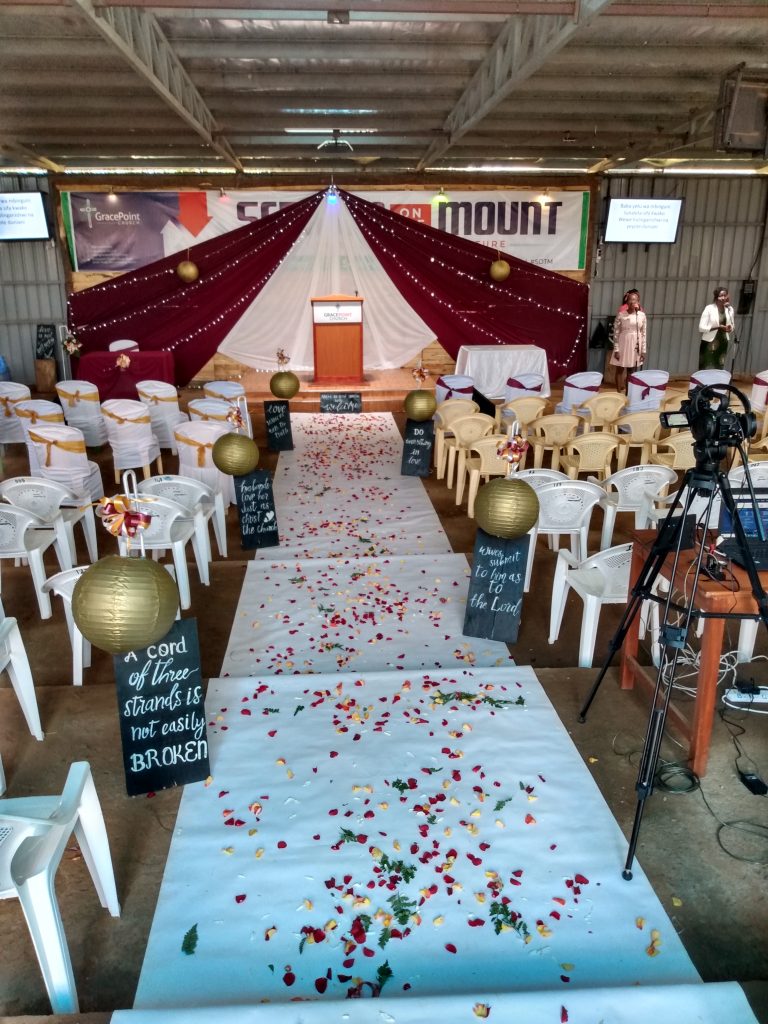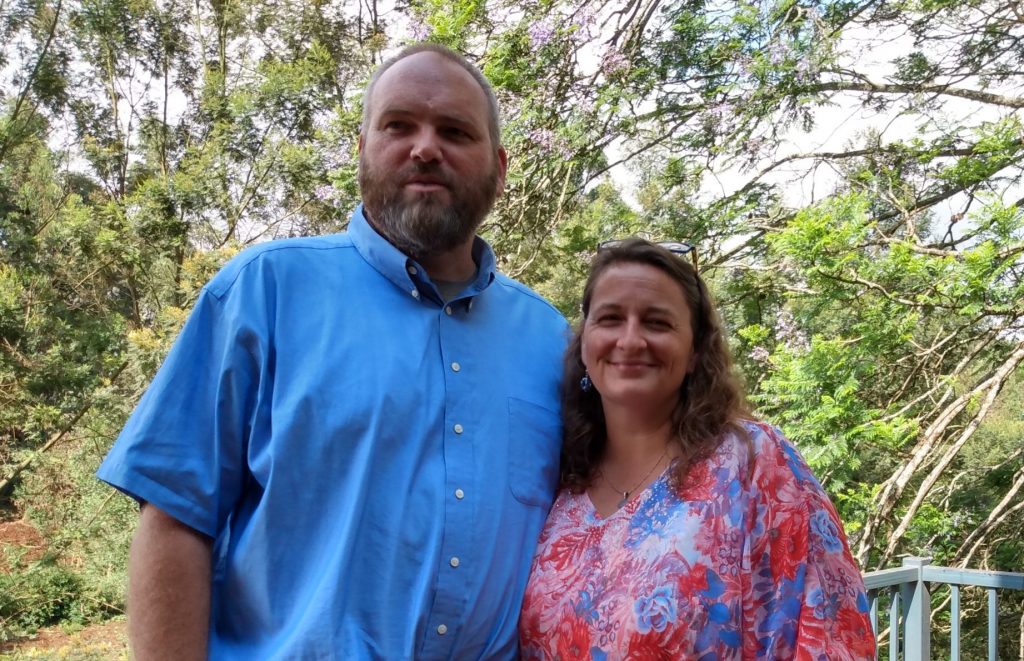Saturday Brandi and I attended the wedding of James and Jane. I have been discipling James for several months. It was a great time to celebrate this couple who we have gotten to know. This as the first Kenyan wedding we have attended.
 The Decorations were up and ready early.
The Decorations were up and ready early.
What caught our attention was the similarities to an American wedding. Of course, there were difference too. Two of the most obvious differences were the groom danced his way down the isle and much of the service was in Swahili. Other than that, the service was similar. The singing of songs, giving of the bride, exchange of vows and rings were all familiar. However, there were some differences surounding the “event” of the wedding.
Keeping Time?
Attending a wedding is quite an event to be sure. I was told by the groom to be certain to be at the church at or before the start time of 10:30 am. He was adamant they would be “keeping time” and not starting late. I had doubts, but assured him I would be early. At 10:30 Brandi and I shared a cup of chai and mandazis (doughnuts) with others as we were waiting for the bride to arrive. Time keeping was out the window.
Fortunately, the wedding did begin by 11 am. Which was much sooner than expected. The pastor told me he thought it would start at noon or later.
Some Invited, Many Come
I assumed the 100 or so guests present as the service began was everyone who was coming. How naive of me. I thought this because James and Jane said they had not invited many people and they wanted a small wedding.
Obviously, their family did not share this sentiment. In fact, this was the most fascinating thing about the wedding. Most of the people did not arrive until the service was almost over. Now I had heard of this happening, but to see it was quite strange from my American perspective.
 Post wedding picture. It was a long, but good day.
Post wedding picture. It was a long, but good day.
Present for Some = Presence
Why would they come late? For starters culturally if you are present for some of the event, whether weddings, church, a meeting or whatever, then you are considered present. That of course is the main thing, to participate in some way.
The second reason, and possibly more influential, is that everyone present gets to eat. And the food does not get served until the end.
As the ceremony finished, in which bride and groom danced out, there were not 100 people, but 200-300 people. Most waiting outside. By the time I was ouside, many people had already lined up in the serving line to eat.
I am not saying this is bad, but it is quite different from a wedding like I am used to attending. People normally come to the ceremony and skip the reception in my experience. However, in Kenya it seems to be the opposite. I also understand this is one experience so it may not be normal.
Clear Gospel Presentation
What made this wedding great in my opinion, is that the couple were joined in marriage before God, family and friends and the gospel of Jesus was preached. All those present were able to hear a clear message of repentance as well as observing the joining of James and Jane in marriage. Leading up to the wedding, James told me the sharing of the gospel was central for him because he knows some family members and others attending were not believers.
Reflecting on the events leading up to and surrounding the wedding, it is evident to see how the gospel can transform a culture. It is also evident that not everything in any culture is completely bad, nor is everything completely good. The struggle for Christians is discerning what honors God and should be or can kept and what should not be kept. It is not always easy to know the difference between good and bad, but it is necessary.
